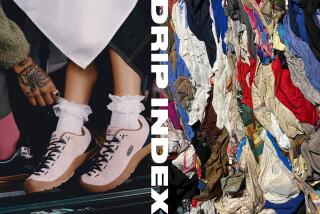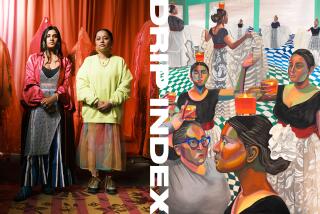Critic’s Notebook: Frieze Los Angeles can inspire a critic’s contempt. Alas, it’s hard to be a hater
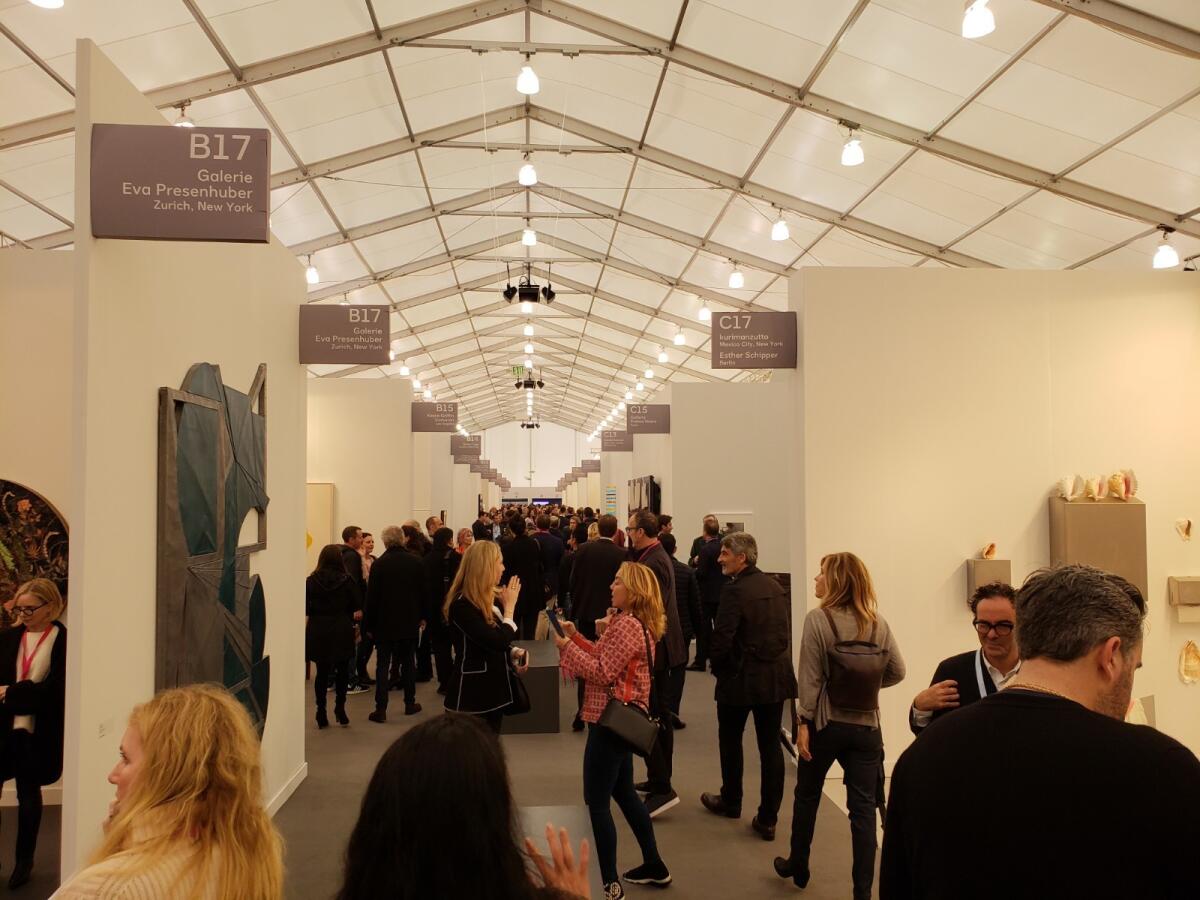
Critics are required by temperament, if not law, to dislike art fairs.
Strike one is the given emphasis on commerce. Strike two is the inhospitable context of makeshift booths with bad lighting. Strike three (you’re out) is the crush of special-event mongers, who mostly ignore the regular rounds of hundreds of free gallery shows that go on all over town during the rest of the year but are happy to jam a three-day fair.
So, in order to keep my Assn. of International Art Critics membership in good standing, let me begin by saying that I dislike the glossy new Frieze Los Angeles Art Fair, which is on view this weekend on the backlot of Paramount Pictures Studio in Hollywood. Frieze emphasizes commerce in an inhospitable context for people whose highest priority is social — a party, preferably with paparazzi in attendance.
And let me follow the harrumph by saying that, in general, the quality of what’s on view in the fair’s 70-plus gallery booths is quite good. (Almost half the galleries are from L.A., the rest from New York, Europe, Asia and Mexico.) Once upon a time, New York and European galleries would send second- or third-tier art by famous names to an L.A. show, because who would know the difference? Those days passed with the 20th century.
The vast exhibitors’ tent, designed by architect Kulapat Yantrasast of the firm wHY, is well organized — nice wide thoroughfares and generous spaces. Weather intruded on the fair’s outdoor section, where several artists — Paul McCarthy, Karon Davis, Sarah Cain, Kori Newkirk and a dozen more — were invited to install works around the rain-drenched Paramount set of New York City streets. Indoors, the crush of visitors often made looking at people (Hi, Mayor Garcetti! Hey, isn’t that Jodie Foster and Alexandra Hedison?) at least as engaging as trying to look at art.
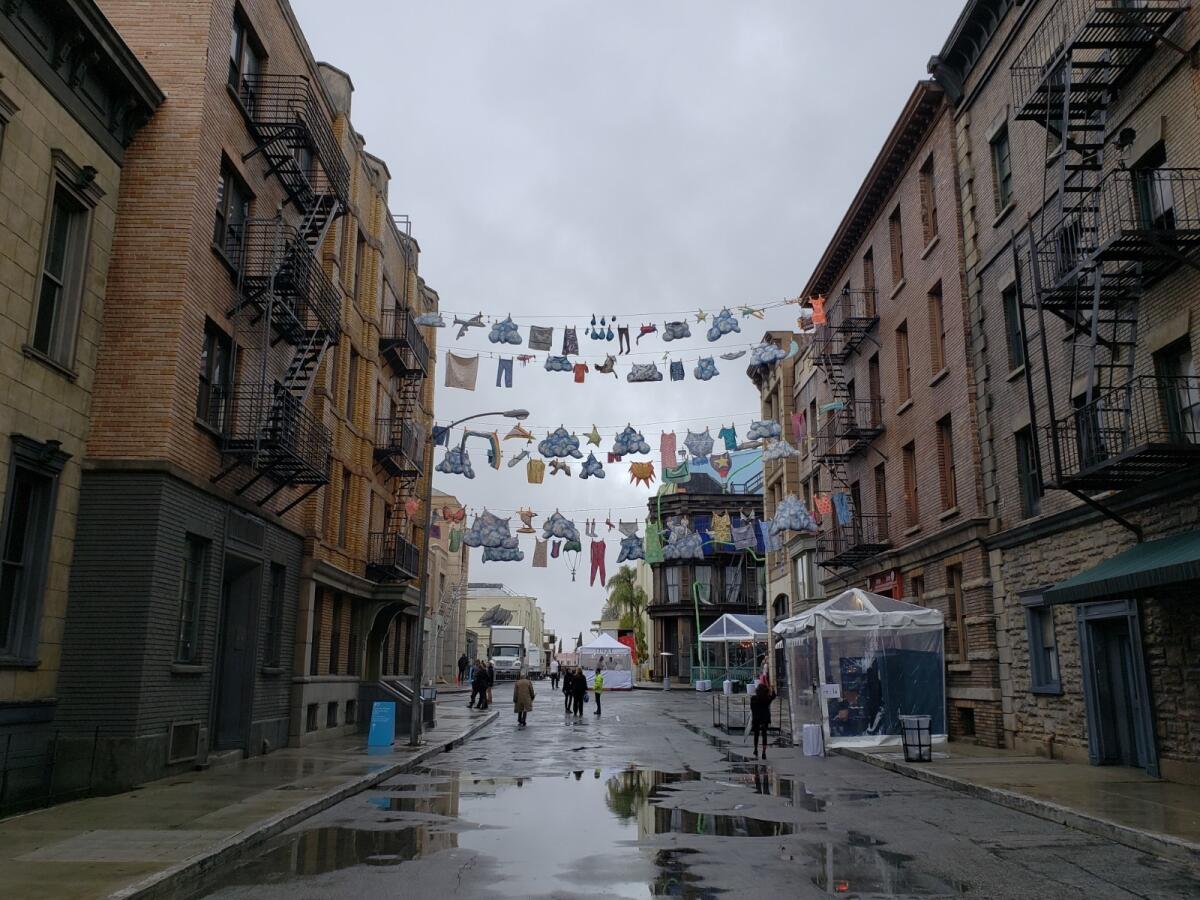
If you don’t already have tickets, though, you may be out of luck. Tickets for Frieze Los Angeles were largely sold out and available only for limited timed entry. (Check here.) But if you got in, you could have snapped up some good stuff had you been on the ball with plenty of disposable cash.
Or at least you could have seen one sure-fire, museum-quality work not shown in L.A. before — an elaborate 1999 installation, “Unisex Love Nest,” which re-creates in creepy detail (plus video) a real magazine design-spread about a young girl’s bedroom, complete with birdhouse bedposts. (Talk about “Psycho.”) It’s by L.A. artist Mike Kelley (1954-2012), whose career trajectory from the 1980s until his death tracked the city’s emergence as an international powerhouse for new art.
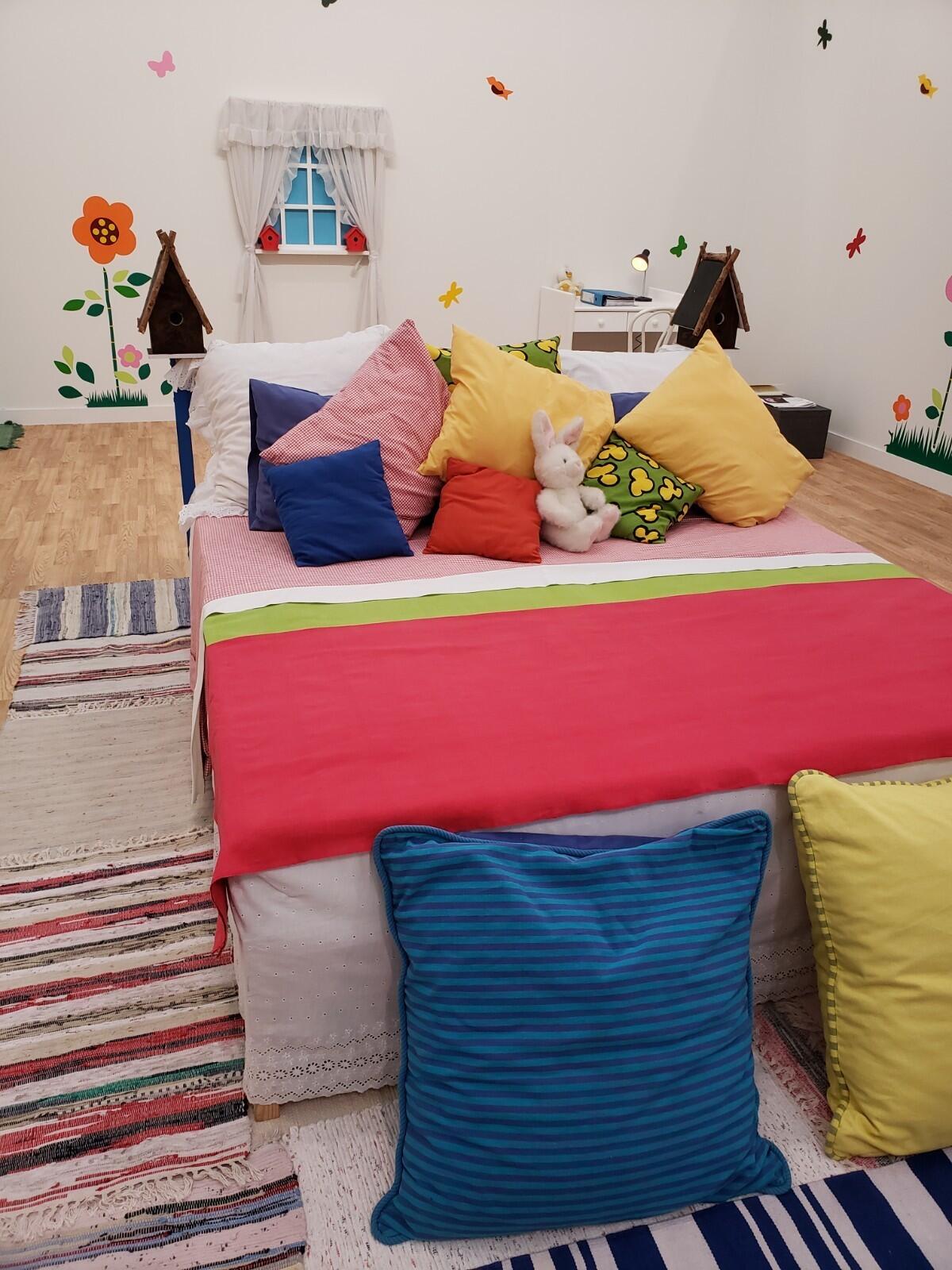
Not all art has a market, of course. And not having a market is zero indication of art’s merit.
The classic high-ticket example is painter Vincent van Gogh, who sold almost nothing during his lifetime. But there are other works of art, like some types of performance or mural or land art, that never intended to enter the marketplace churn at all. They might get sucked in somehow — the marketplace is powerful in a capitalist society — but their makers are indifferent or even hostile to it.
Likewise, having a market is also zero indication of art’s merit. Today’s high-ticket classic is probably Jeff Koons. Some of his sculpture is terrific; all of his paintings I’ve ever seen are awful. (I didn’t spot either at Frieze.) This is art that operates as an asset class, like cash, securities and bonds.
When a big, brash art fair comes to town, market irrelevance is easy to forget. Frieze, expanding from established, high-profile runs in New York and London to check out Southern California, is an art market on steroids. A fissile glow is cast on at least four more fairs, old and new, all smaller and running simultaneously around the city this weekend: Art Los Angeles Contemporary at Santa Monica’s Barker Hangar, stARTup at the Kinney Venice Beach hotel, Felix at Hollywood’s Roosevelt Hotel and Superfine! at the Magic Box event space downtown.
THE CRITIC: Hollywood takes a ‘Velvet Buzzsaw’ to the art critic. This art critic responds »
Los Angeles has been a major production center for new art for more than half a century. In the 1990s, regional cachet evolved into an international reputation. Now, Frieze hopes to transform an art production center into a consumption center too.
L.A. does love retail. But speaking of art as an asset class: New York and London are international banking centers, while this city is not. That, more than fantasies of cultural deficiency, is what generates hand-wringing over whether or not an art fair here will be a commercial success. The hurdle is high.
With big money comes the potential for big headaches. Endeavor, the Hollywood talent agency that acquired a stake in Frieze in 2016, last fall scrambled after the shocking murder of journalist Jamal Khashoggi to unwind a $400 million deal to give Saudi Arabia a chunk of the agency. Weeks later, German authorities raided the Frankfurt headquarters of Deutsche Bank AG, principal sponsor of the Frieze fair, in connection with suspected international money-laundering.
Mud-splashed art is unappealing. But if art, money and celebrity have all converged, as many folks maintain, then an L.A. art fair is essential. Hosting it at a movie studio that languishes at the bottom of the domestic box-office pile could hardly be more precise.
UPDATES:
The language on ticket availability was updated early Saturday morning.
More to Read
The biggest entertainment stories
Get our big stories about Hollywood, film, television, music, arts, culture and more right in your inbox as soon as they publish.
You may occasionally receive promotional content from the Los Angeles Times.

